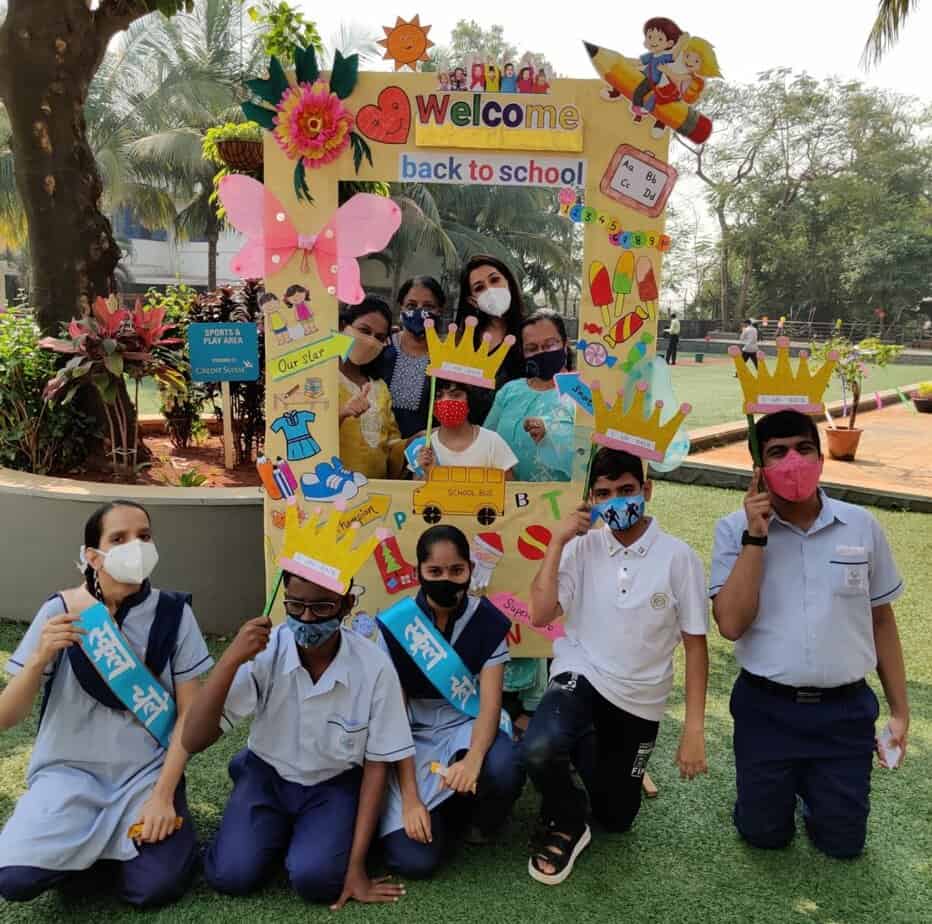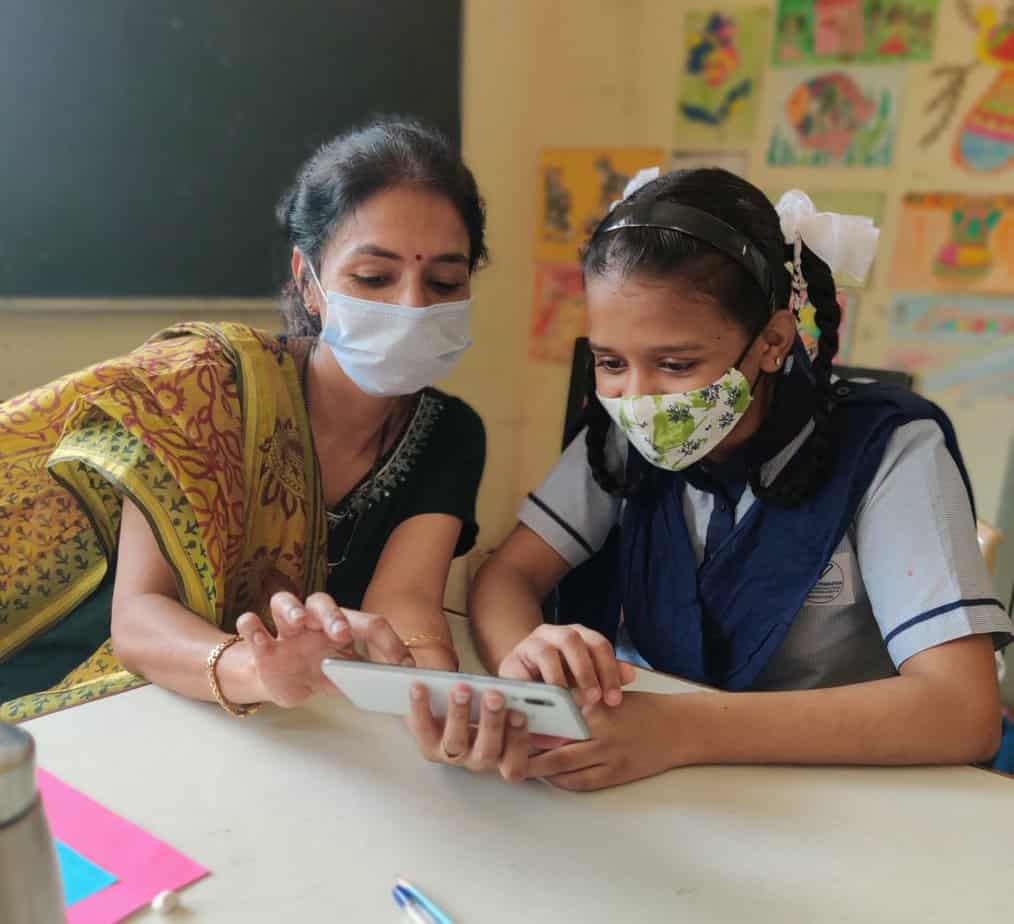Jaspreet Sachdev is a mother to eight-year-old Jasman, who has autism and Attention Deficit Hyperactivity Disorder (ADHD). After two years of online learning, he is back to school after the Maharashtra government allowed offline classes to begin in February. Jasman loved going to school and was really fond of his teachers and peers. School kept him busy and happily occupied for a major part of the day.
But when schools started in February, Jaspreet had multiple meetings with Jasman’s teachers about some behavioural issues such as impatience, aggression and inability to focus, all of which had worsened during the COVID pandemic.
As schools in Mumbai have opened up and students have made the transition from online to offline learning, there have been challenges. Shortened attention spans, inability to work in groups and decreased social skills are common, especially among young students between ages 4-12. In the pandemic, these challenges were especially present among students with learning disabilities, since the special education they would receive in physical schooling was not made available to them.
A recent UNESCO study found that 10-12% of students in India suffer from learning disabilities – which is 4-6 students in a class of 40. Disabilities generally invisible or hidden are harder to navigate for parents. “This increases frustration in parents, since they are not able to help,” says Sheetal Gaikwad, a special educator at Jai Vakeel Foundation (JVF), a special school for students with learning disabilities.

Identifying the learning gap
Deepti Gubbi, head of education at JVF, finds that the change in routine can be troubling for students with learning disabilities. Special schools aim at providing a safe environment and system of care as students are surrounded by professionals trained in making learning more effective for them. As schools closed down in 2020, students lost their daily routine.
Before the lockdown(s), children had a habit of waking up at 6:30 am to go to school and then spend the day doing various activities. Once the schools closed, they started waking up as late as 10-11 am and barely took up any physical activities. “A lot of our students gained a lot of weight during the pandemic, as they completely missed out on physical activities that would happen in schools” Deepti said. Teachers say that excess weight gain in young children with learning disabilities can even be a hindrance to learning new functional skills. Physical activity stimulates the brain, facilitating effective learning, they say.
Physical activity is a big part of their learning. It helps them form social skills, encourages collaboration and increases hand-eye coordination. A school environment is difficult to recreate at home, especially when the parents are trying to make ends meet. This was one of the biggest challenges while coping with online learning. Physical activities like dancing, yoga, and games help improve children’s locomotor skills, but in the las two years, parents say that these skills have regressed.
JVF conducts an assessment of students thrice in a year on five categories – education, activities of daily living, communication, social behaviour and recreational activities. The assessment done post-showed an overall decline when compared to pre-pandemic times. Because of this, there is also a growing need for occupational therapy among students with learning disabilities.
Sheetal Gaikwad works with students who are on the autism spectrum. She observed that a lot of her students who used to love coming to school before the pandemic now cry on the commute and in school.
Read more: Why do so many seats reserved under the Right To Education (RTE) Act go vacant?
Introducing new learning methodologies
At Gateway School in Chembur, teachers say that it is crucial to understand the varying needs of each student. As schools have been open since March, teachers have been able to try out different teaching methods to accommodate the changing needs of students. “Do kids need to play out more? Should they have longer breaks in between classes? Should the timetable be altered altogether? These were some of the questions we explored through trial and error to see what works best for their students,” said Varsha Makhija, principal at Gateway School. After four months of teaching, they will implement their new policy in the new academic session.
Teachers found that students responded best to routine and discipline. Even if it would take time to return to pre-pandemic times, they need to bring back a sense of normalcy to school and learning. “A few students may need one-on-one attention, as they have a hard time adjusting to big transitions. We ensure that they get the right help,” said Varsha.
“Before the pandemic, I relied on the school to teach my son skills to adjust in the real world. But now that I have experience collaborating with teachers to understand how to manage with my son – like learning commands to give him so he listens and adheres to the sitting compliance – I feel more confident to teach him,” said Jaspreet Sachdev. Partnering with parents is imperative for a child’s holistic development. When parents had to work with their children in the pandemic, this practice empowered them, knowing that even they could help their children.
Teachers took to visual aids, as they realised it helped students retain more information. Using videos and play methods were a lot more effective in getting students to pay attention.

At Gateway School, they had a lot of feedback coming from parents, check-ins with teachers and students, all of which helped the teachers improvise their methods. Soon, teachers realised that there was no one-size-fits-all solution and that each student came with different challenges.
Shortage of teachers — a major challenge
“We don’t have enough manpower,” says Sheetal Gaikwad. “When each student has such varied needs and requires a lot of one-on-one attention, it is difficult to help everyone in the way that we’d like to. Parents are supportive, but they can only do so much while managing other household responsibilities and their own work,” she adds.
Despite schemes like the Sarva Shiksha Abhiyaan, which funds government schools, and special education training programs by the Rehabilitation Council of India, there is still a lack of trained and qualified special educators in Mumbai. The city has only 18 Brihanmumbai Municipal Corporation (BMC)-run schools that admit children with learning disabilities.
“The government does support schools and NGOs that help these children financially, some even provide training programs, but it all boils down to the quality of education and training that is provided, which is quite poor,” said Joyeeta Sen, a special educator at Ummeed foundation.
A supreme court verdict in 2021 suggested that the pupil-teacher ratio for children with cerebral palsy should be 8:1; 5:1 for children with intellectual disability and autism; and 2:1 for deaf-blind children. “We are nowhere close to this,” said Deepti Gubbi. “Everyday less and less people are opting to be teachers, and even less are opting to be special educators, and the stigma and unawareness around learning disabilities is still potent, which contributes to the problem,” she added.
Decreasing functional and social skills among children with learning disabilities have increased parents’ anxieties about their lost learning in the pandemic. “We worry that our children will lag behind other kids their age. Children on the spectrum don’t react well to changes in routine as it is, but the pandemic changed things overnight, which was especially hard on atypical children,” said Jaspreet. As new academic sessions start, teachers plan to work with parents to bridge these learning gaps.